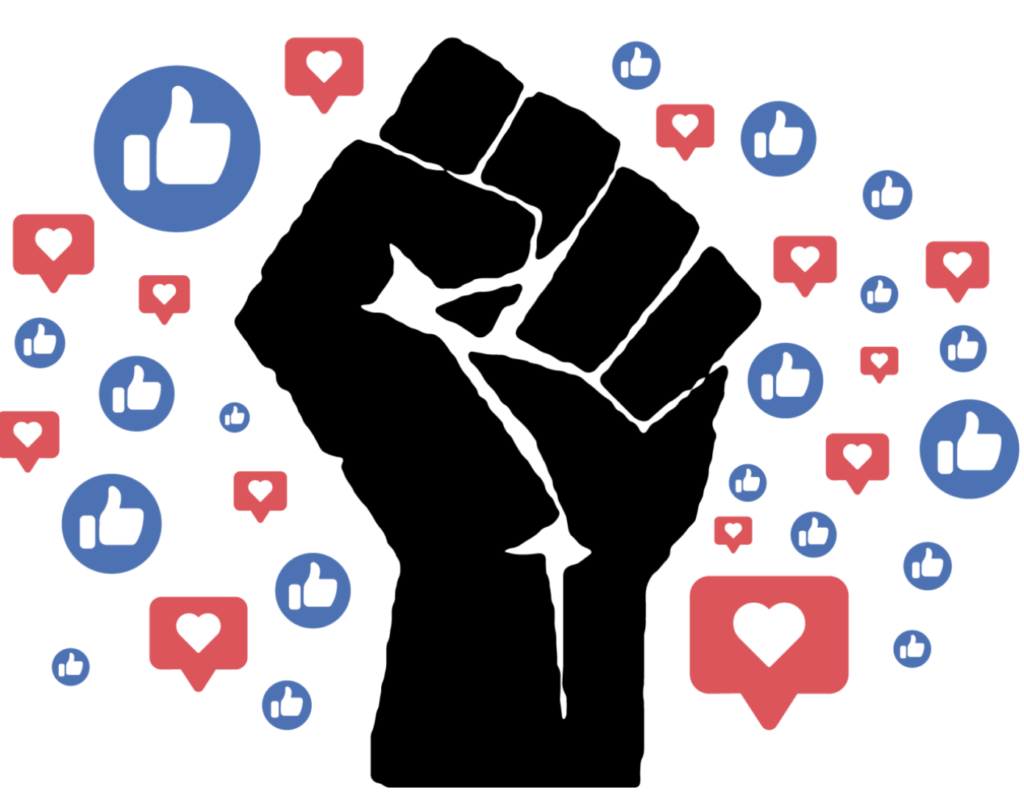
Actions speak louder than words, and they certainly speak louder than social media posts. However, this summer’s response to police brutality and injustice against Black people in America proves that many still have a lot to learn about this lesson.
Ahmaud Arbery’s case was brought to the forefront of the nation’s mind after he was killed while going for a jog in February. Breonna Taylor’s case also received national attention after she was fatally shot by police officers following a botched raid of her apartment in March. George Floyd was then killed in May after a police officer knelt on his neck for over eight minutes.
These are only a few of the cases that gained national attention this year and an even smaller fraction of the cases of violence and brutality against Black people in the history of the United States.
Following the public outrage from these cases, the Black Lives Matter movement was supported by a majority of adults across all racial groups and resulted in hundreds of protests nationwide. Unfortunately, another thing that grew substantially over the summer was performative activism.
In June, two-thirds of U.S. adults expressed support for Black Lives Matter. By September, the support fell to 55 percent. What explains that decline from June to September? Well, support decreased notably among white and Hispanic adults. For white adults, support for Black Lives Matter fell from 60 percent to 45 percent, and for Hispanic adults, support fell from 77 percent to 66 percent.
Pictured: Data indicating support for the Black Lives Matter movement from June to September 2020. Photo Courtesy of Pew Research Center
The significant decrease likely has a lot to do with performative activism and slacktivism. Performative activism is “a form of activism used to increase one’s social capital or personal gain rather than genuine support towards a movement, issues, or causes.” Slacktivism is “the practice of supporting a political or social cause by means such as social media or online petitions, characterized as involving very little effort or commitment.” Basically, these forms of “activism” are just for social clout and not about making real, substantial change.
Amid the protests that covered the country this summer, social media was filled with images in support of the Black Lives Matter movement. It was pretty inescapable, and quite frankly trendy, especially among young people. Instagram, Twitter, and Facebook were all flooded with information about systemic racism, police brutality, white privilege, and mutual aid funds.
While these resources can be helpful in spreading a message and informing people about a specific issue, they are simply not enough to actually transform the systems that negatively impact Black people in America. Some of the social media trends—like the hashtag #BlackoutTuesday—were actually more harmful than helpful because they drowned out important organizing information about protests and donations.
Now that the Black Lives Matter movement and this summer’s protests have lost their constant media attention, it is no longer seen as trendy among some groups to support these causes. Trendy topics get ample attention on social media, but topics that make people uncomfortable and challenge the status quo typically do not.
Black Lives Matter and the accompanying calls to completely rethink policing in America make some white people uncomfortable. Radical ideas that challenge the status quo push them to come to terms with their own racism and the ways in which white privilege has benefitted them. While they supposedly supported the cause of protecting Black lives, they were unwilling to dismantle the actual systems that caused the problem in the first place. Their support only went as far as their comfort zones—a quick like or share—falling short of the revolution necessary to actually protect and uplift Black people in America.
Pictured: People at a protest with signs that read “Silence is Violence” and “If you are silent, you are complicit.” Photo Courtesy of Phil Roeder via Wikimedia Commons
Activism and allyship can undoubtedly be expressed in a multitude of ways, and marching on the streets is not the only way to express support for a cause, especially during a pandemic. The important thing to keep in mind is that you should be doing something beyond just sharing a tweet or reposting something on your Instagram Story. Take whatever gift you have—writing, singing, acting—and use that gift to enact change. You can also donate to organizations and mutual aid funds, sign petitions, contact your elected officials, or have difficult conversations with your loved ones. Movements take all kinds of activists and leaders.
And let’s not forget that remaining silent or even claiming to be neutral in situations in which people are unjustly losing their lives makes you complicit in whatever injustice is taking place. You are either racist or anti-racist. There is no in-between. Which side are you on?
